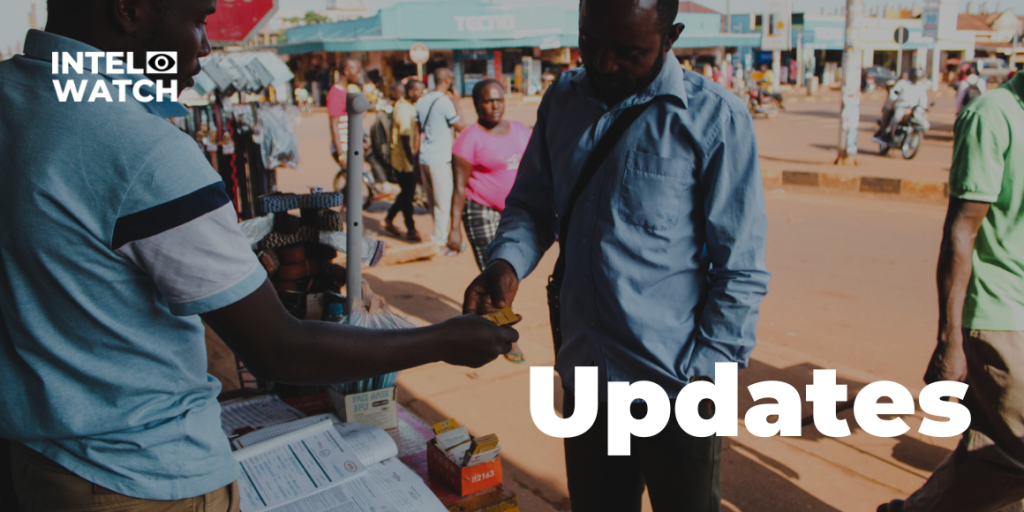GILAB Invite 2023
Dear colleague
If you haven’t seen the new General Intelligence Laws Amendment Bill (GILAB), then you need to. It contains elements that will be of concern to non-governmental organisations and civil society bodies. I attach a summary briefing document and a more detailed information sheet dealing with the concerns sparked by the Bill’s content. It was approved by the Cabinet and is due to be tabled in Parliament any day now.
If this Bill goes through Parliament in this form, it will potentially have major consequences for civil society. It is important that civil society organisations lobby as strongly as possible to improve this draft.
We are convening a virtual information session with civil society bodies where we will also have a group discussion of the Bill and explore options going forward. Please join us in this gathering at 10am on Thursday, August 17, and pass on this invitation to affected parties.
Please RSVP to [email protected] by August 14 so that we can ensure that we can accommodate the numbers. We will send a link closer to the time to the RSVP list.
For more information, please see our briefing note below.
I hope you or a representative of your organisation can attend.
With thanks
Murray Hunter
IntelWatch
Anton Harber
Campaign for Free Expression
Briefing note: The General Intelligence Laws Amendment Bill (GILAB 2023)
The General Intelligence Laws Amendment Bill (GILAB 2023) has been approved by Cabinet. The next step is for it to be tabled in parliament, after which there will be a call for public comment on the Bill. GILAB has sparked serious concerns about its potential impact on civic participation, lack of protections from mass surveillance, and lack of provisions for improved oversight of intelligence services.
Expansion of state vetting powers
GILAB would expand the SSA’s current powers to include mandatory security vetting of persons seeking to establish and operate non-profit organisations, religious organisations, and private security companies. Vetting is usually reserved for state employees and contractors with access to sensitive state information and locations. The process allows the State Security Agency (SSA) to access all personal and financial information that the Agency deems necessary to find out if a person is a threat to national security. Vetting can include polygraph tests and the interception of the private communications of the person being vetted. This raises concerns about freedom of association and the risk of surveillance of civil society organisations, especially given the government’s historical allegations of critical civic groups being national security risks or the proxies of foreign governments.
Legalising mass surveillance
GILAB attempts to establish in law the operations of the SSA’s mass surveillance facility, the National Communications Centre (NCC). This amendment was necessitated by a Constitutional Court declaration in the amaBhungane judgment on RICA (the country’s primary surveillance law) that the NCC was unlawful. Subsequently, the NCC had to cease operations.
However, GILAB does not provide for the requisite protections for privacy and freedom of expression, nor for meaningful oversight of the NCC. These shortcomings could enable illegal communications interception and could potentially undo the gains made by the amaBhungane judgement on RICA. (These gains include, among others, obligations on the state to notify persons (after the fact) that their communications were intercepted and to ensure the independence of the judge granting interception orders.)
Failure to deliver on oversight and accountability
Multiple commissions and inquiries have identified the lack of proper oversight and accountability of the SSA as a major problem that has enabled abuses of powers, politicisation, corruption, and even state capture. Yet GILAB fails to address these issues. For example, GILAB does nothing to boost the independence of the Inspector-General of Intelligence, the watchdog of the intelligence agencies. Under current law, the IG’s decisions do not appear to be binding. Crucially, GILAB also fails to provide safeguards to prevent the abuse of the SSA’s secret funds. This lack of safeguards was a key dimension of State Capture at the SSA.
Given the above aspects, it is vital for civil society organisations to engage with the implications of GILAB and advocate for meaningful reforms that safeguard democratic rights and accountability.
Resources
- Download the GILAB 2023 here.
- Op-ed: New intelligence bill a blueprint for State Capture 3.0
- Op-ed: How to unmuzzle the SSA watchdogs
Find our briefing note on the GILAB here and join our information session on the GILAB here.


